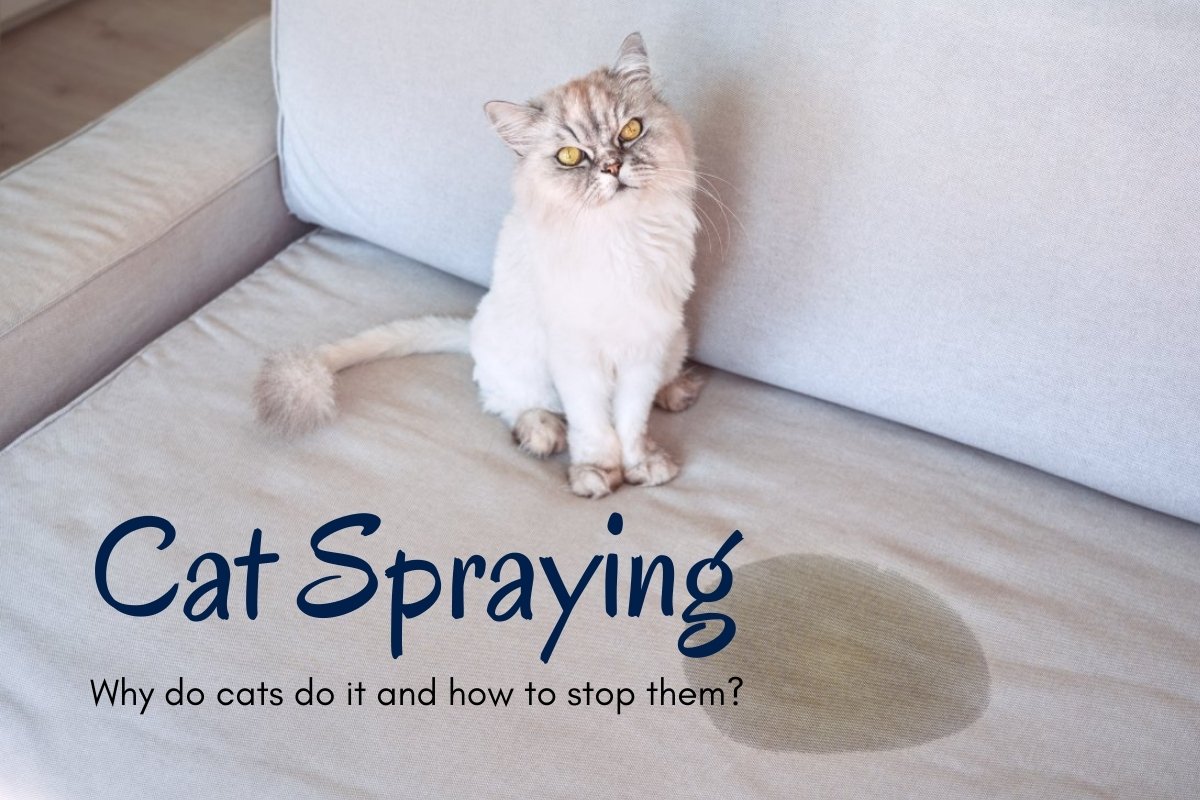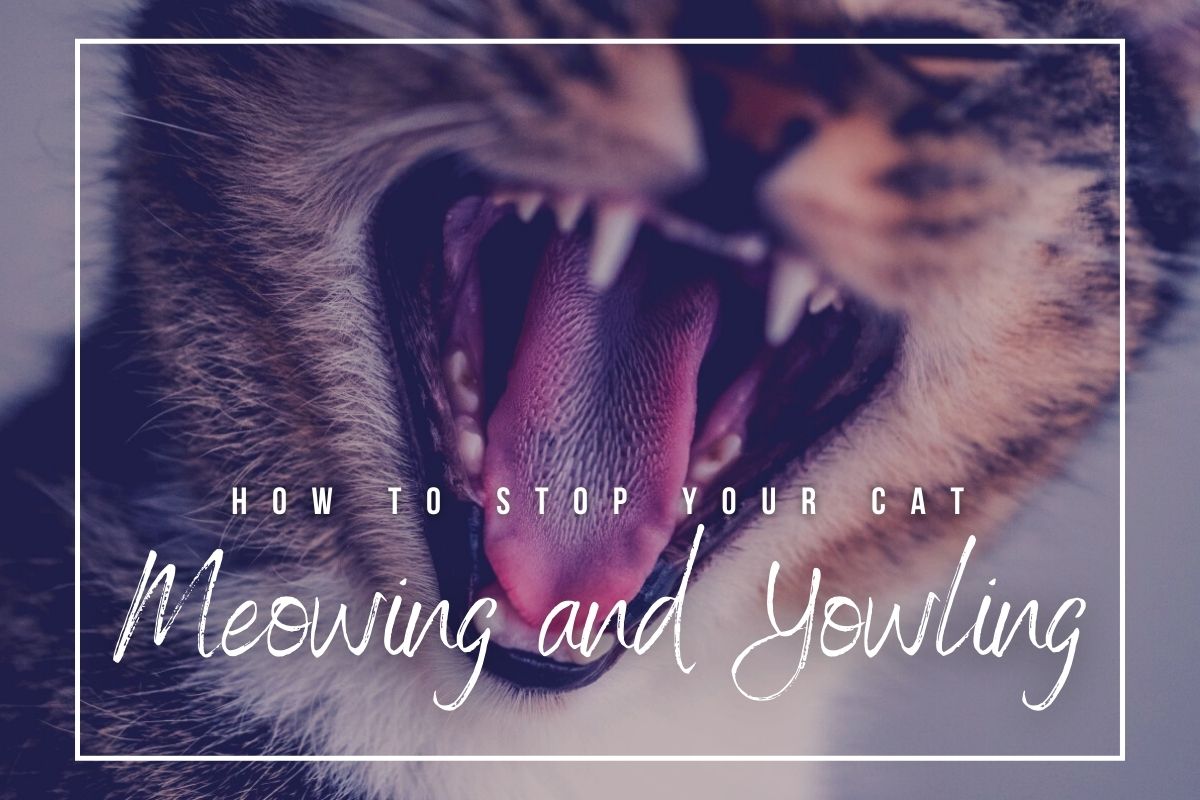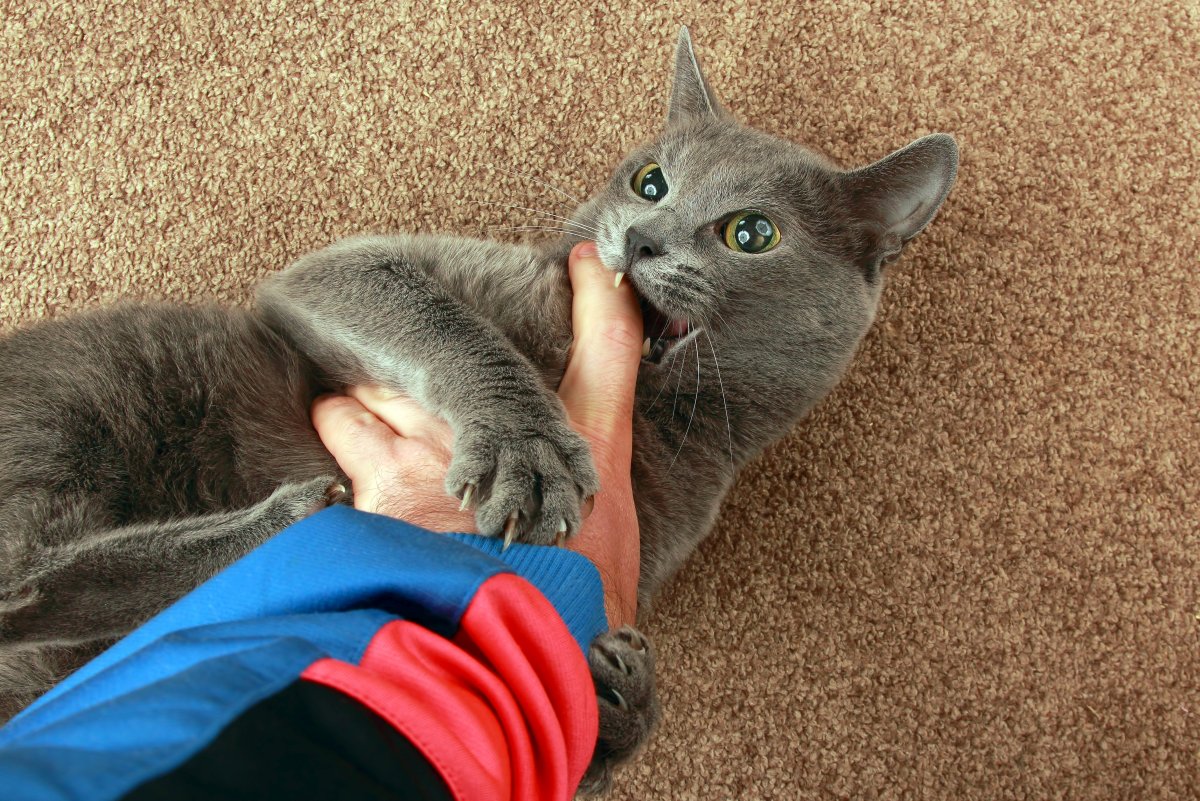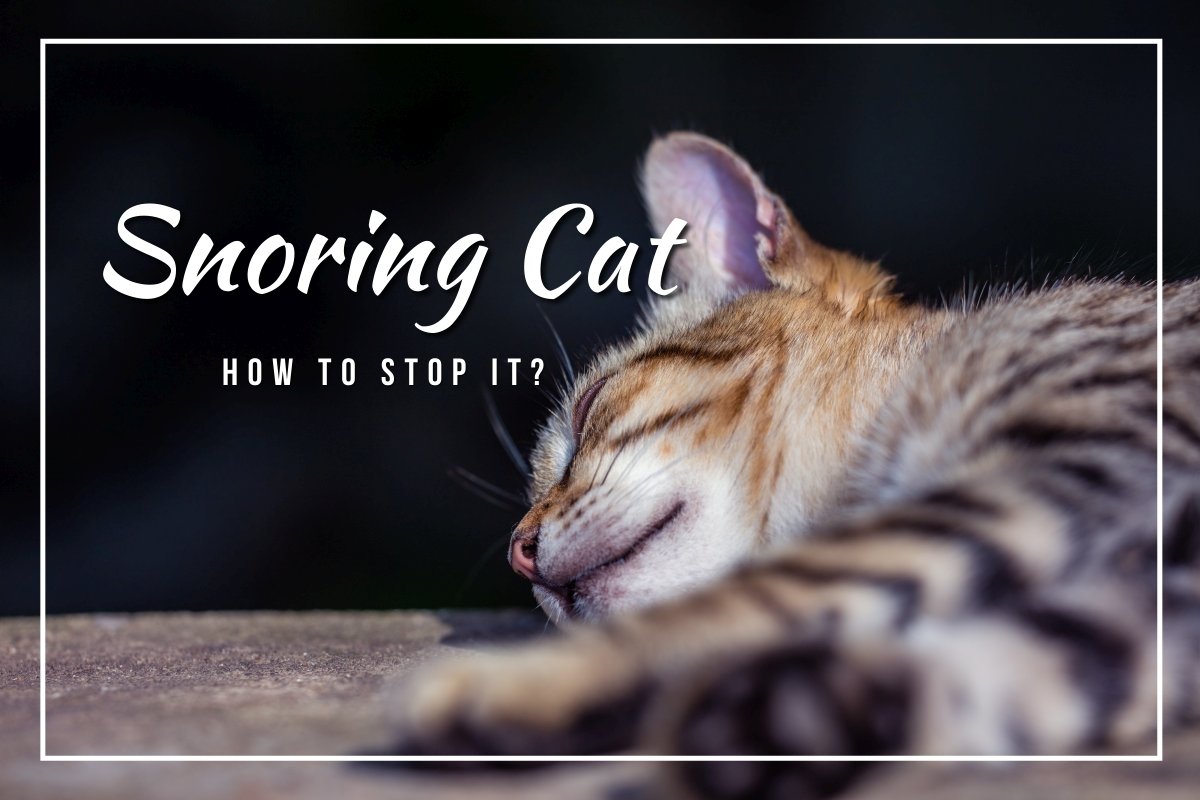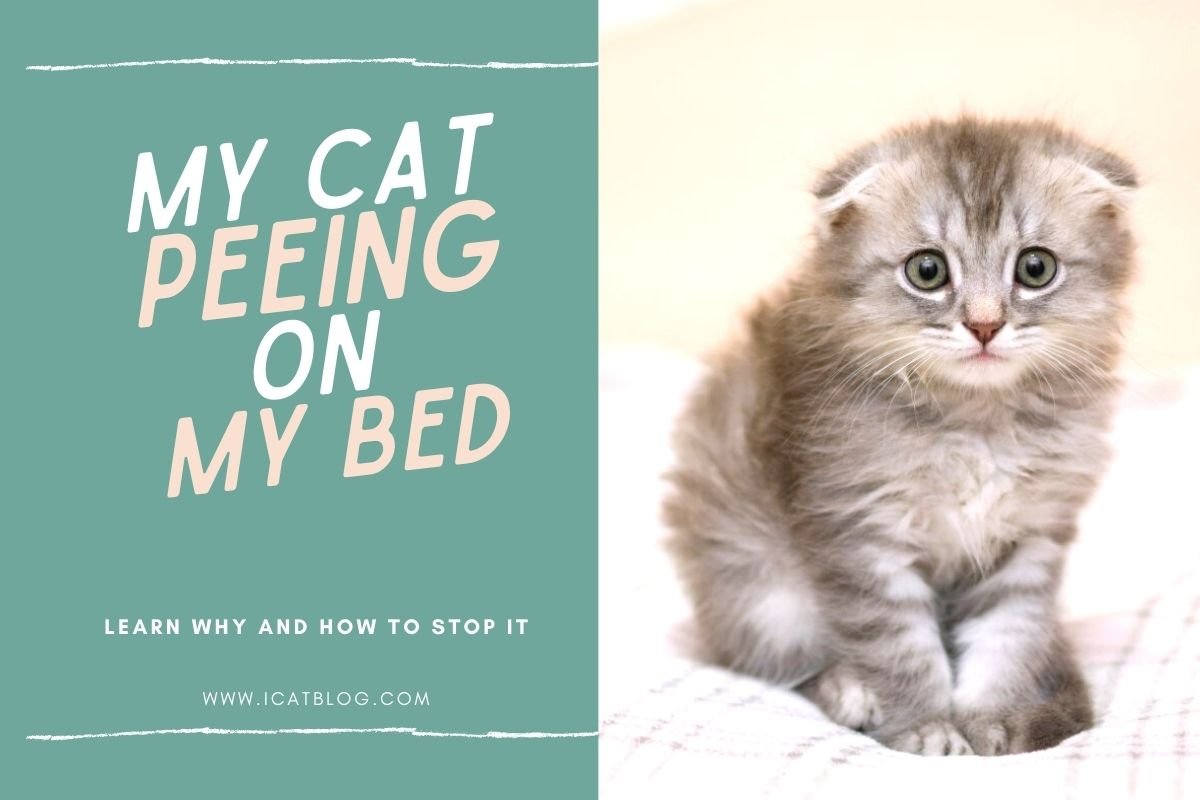While coming back home, do you ever find your feline companion spraying on your favorite sofa, walls, carpets, or curtain? Don’t worry; you are not alone! It is one of the most testing moments for cat owners to deal with this issue. While cats make lovely pets, some of their behaviors seem confusing and even a little anti-social!
Cats spraying urine can be the most unpleasant smell inside your home. But instead of punishing your cat, you better need to understand the behavior that causes her spraying. Ask yourself, ‘Why is my cat doing this and ‘how can I tackle this issue?
There are several reasons behind cat spraying, but first, understand why do cats spray. Read on to discover all the reasons behind cat spraying and tips that you can apply to your cat to stop this behavior.
Why Do Cats Spray?
It is a widespread belief that cats spray to mark their territory. But a cat can also spray when she feels stressed, frightened, or threatened. Cat spraying also means insecurity and a change of routine and environment.
Whatever the cause, cat spraying is an unpleasant behavior that causes odor in your home. Have a look at the following reasons that cause cat spraying!
● Your Cat is Feeling Stressed
Your cat can be experiencing more stress or anxiety than you may realize. Any change in her surroundings, such as moving to a new home, placing new furniture, or introducing a new member of a family, can cause her to feel stressed.
● Your Cat Has Medical Issues
Urinary Tract Infection (UTI) is the serious reason behind your cat spraying, especially if you have a male cat. If the urinary tract of your male cat is blocked, he will not feel comfortable and will try to urinate as soon as possible to relieve pain. Female cats can also face this medical issue, but blockages are less common.

If your cat experiences blockage or UTI, he will be more vocal and may show changes in behavior. If you suspect this issue in your cat, take your feline friend to the vet because blockages, if left untreated, can result in death.
● Your Cat Is in Heat
Indoor cats are more likely to escape outdoors, especially if they are not spayed or neutered. If your cat hasn’t been spayed, you will experience cat spraying more than usual. Cats show their natural behavior of spraying when they are in heat, and this behavior may occur more if you have multiple cats in your house.
● Your Cat Is Marking Territory
Marking territory is essential for cats, especially in their home. Cats mark their territory to feel safe and secure in their area, and this helps them keep the outdoor cats away from their territory.
● Your Cat Has Litter Box Issues
Cats are very picky animals, especially regarding litter box preferences. Their perfectly suitable litter box can become unacceptable for them within no seconds. Due to this, they often sprayed outside the litter box no matter how neat it was.
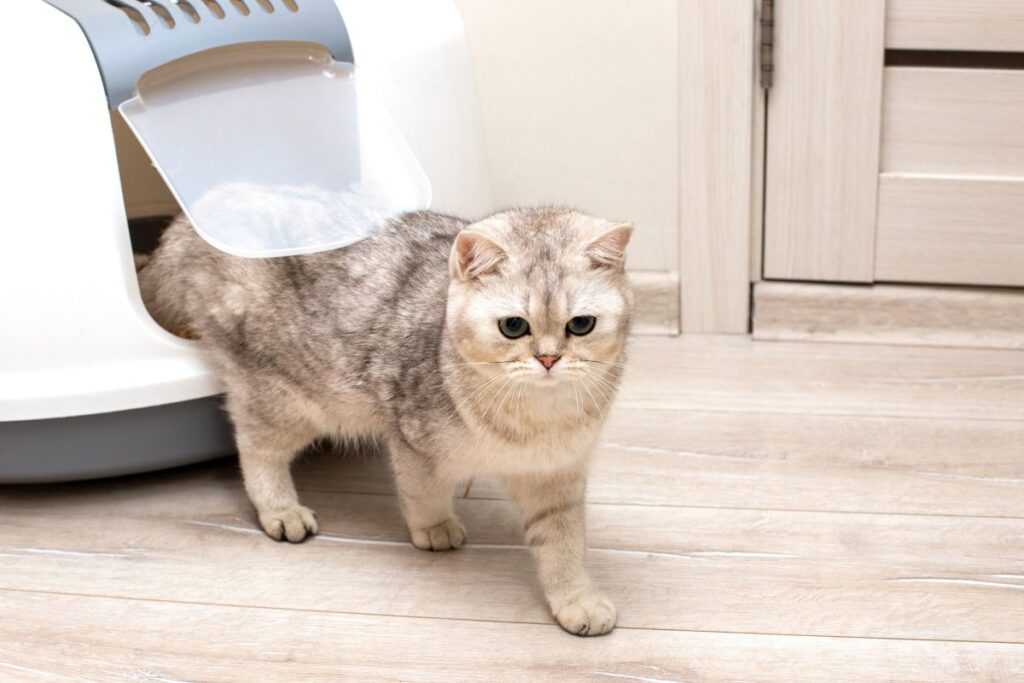
Tips to Stop Your Cat From Spraying
Following are some effective solutions to prevent cat spraying:
● Spay Your Cat
While a desexed cat can still spray, getting her spayed will prevent this behavior. Get your cat neutered if she is not desexed. This will reduce her hormone levels of mating and will also eliminate the urge to spray.
● Help Her Feel Relaxed
If your cat is spraying because of anxiety or stress, you need to find a solution for her problem. Look for signs of stray cats lurking outside, such as dead rodents or birds on porches. The presence of a feral cat can make your cat feel threatened about her authority. Moreover, if you have other pet animals, determine if they are bullying or harassing your cat.
● Check Your Cat’s Living Area
Cats don’t like sudden changes, and they feel anxious when they experience changes in their surroundings. Before jumping to conclusions, determine the problems causing your cat spraying. Ask yourself the following question:
- Is she not liking your new home?
- Did you leave her home alone?
- Have you changed her mealtime?
- Have you moved her food or water bowls?
- Is her litter box clean?
These questions may help you know the reason for stress in your cat.
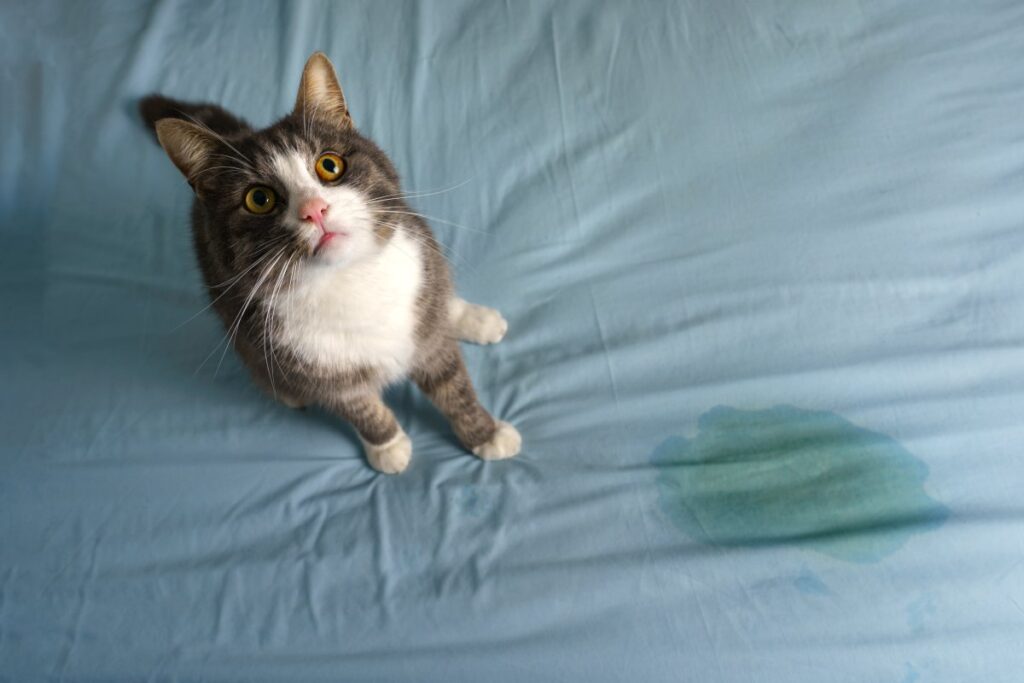
● Play With Your Cat
Play games with your cat to keep her active because regular activities give cats a sense of stability. Give your cat some interacting toys to keep her busy when you are not there. Also, do regular play sessions with her to make her feel more loved.
● Stay Positive
Understandably, cleaning the mess of your kitty is the most annoying task for cat owners. But for her behavior, never yell and punish your cat as it will increase the level of stress and spraying. If your cat is spraying at the same spot every day, clean the area and encourage her to sleep, play and feed there. This will help your cat associate with the area, and she may avoid spraying there.
● Use a Calming Spray or Diffuser
There are many products available in the market that are designed to reduce the stress level of cats. These include sprays, collars, diffusers, and supplements. These products are odorless to humans, but they have a calming effect on cats because they make cats feel less stressed and less sprayed.
● Consult Your Vet
If all the tips fail, you should discuss your cat’s problem with the veterinarian. Your vet will check the medical and physical issues contributing to your cat spraying. Your vet will also contact the animal behavioral specialist, who can evaluate your cat’s breed traits, habits, and lifestyle.
Wrapping Up
You will require some time and patience to break the bad habit of your cat. However, before using any above tips, it is advisable to make an appointment with the vet to address any underlying medical conditions that may be provoking the issue.

